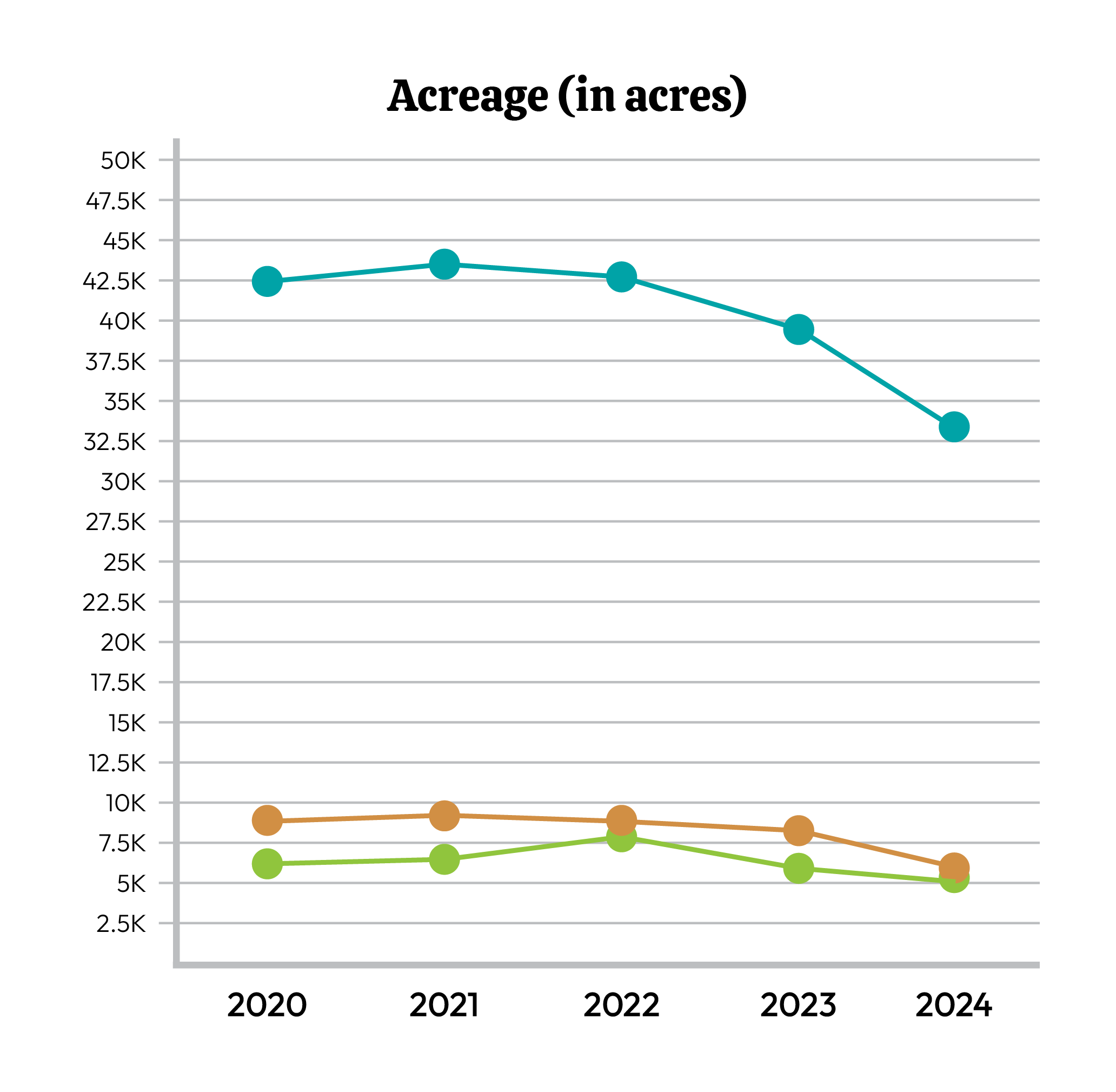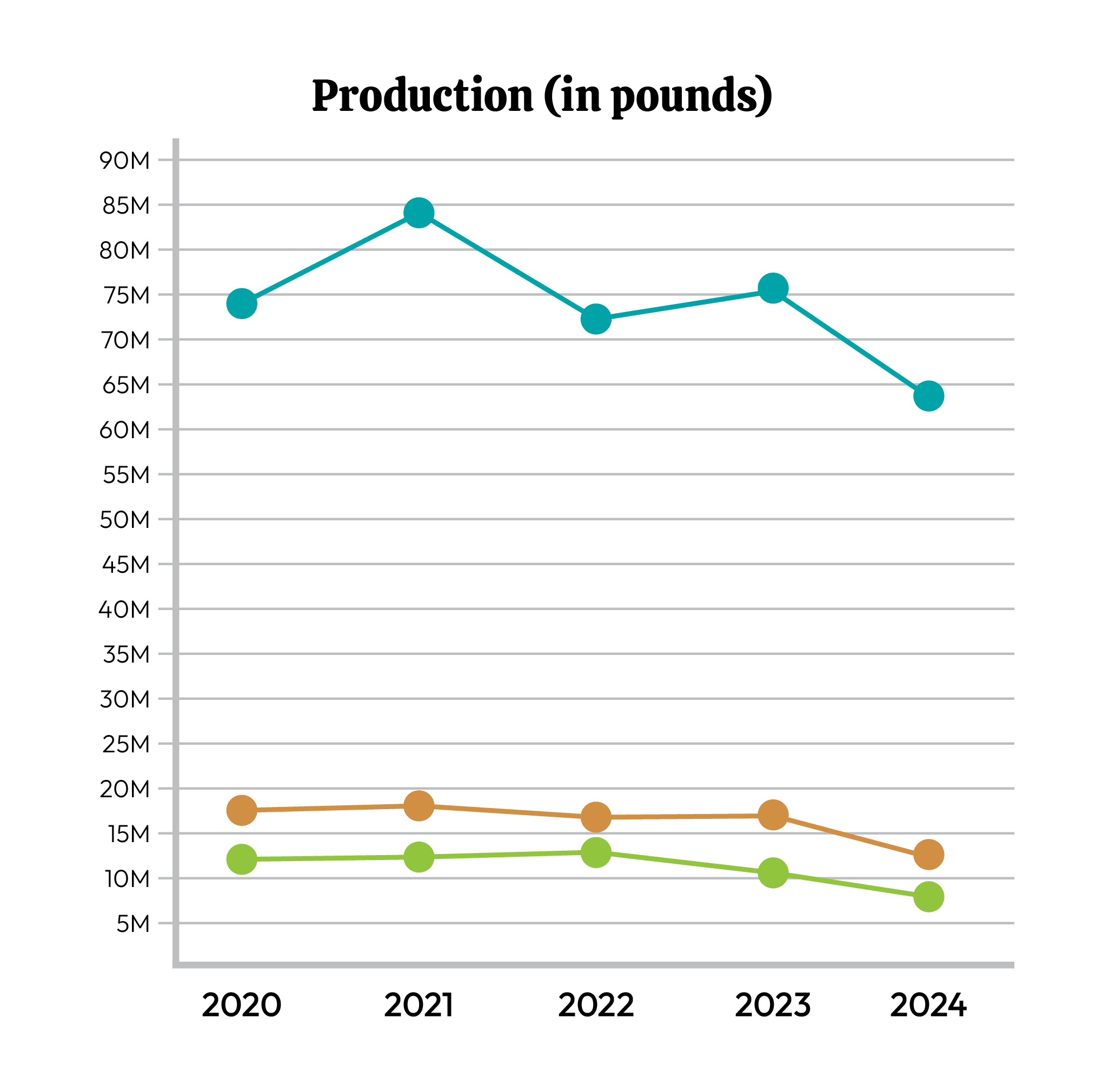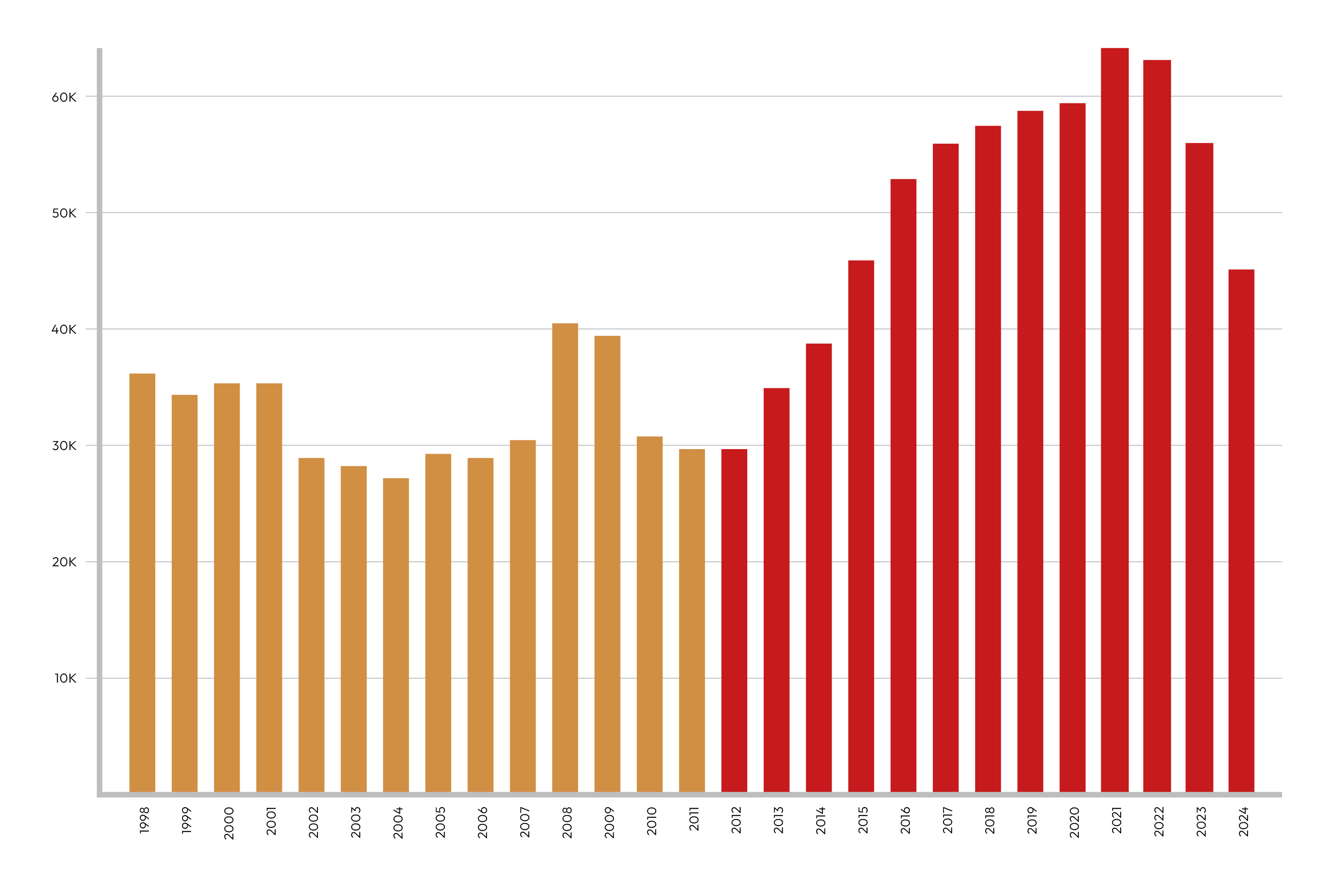Harvested Acres
1998 to 2024
The Pacific Northwest and coastal states have a long history in U.S. hop crop production. From the end of prohibition to today, acreage has grown as the commercial hop industry spreads across the nation. Today, Washington, Idaho, and Oregon produce over 98% of the U.S. hop crop and approximately 38% of the global hop crop, illustrating the magic of the PNW’s unique mix of geology, climate, infrastructure, and people.
Other states are increasing their hop production as well, with noticeable hop acreage increases in California, Michigan, Wisconsin, Pennsylvania, Virginia, North Carolina, and Florida.
The unique combination of prolific volcanic activity and the Columbia River Basalt Group–one of Earth’s best-preserved continental flood basalt provinces– gives the region a mineral-rich sand, silt, and clay soil.
From the hot, dry climates of Eastern Washington and Idaho to the wet, moderate climate of Oregon, the range of PNW climate types allows the U.S. to produce a wide variety of hop cultivars, aromas, and qualities. The high desert of Yakima, served by the snowpack of the nearby Cascade mountain range is home to over 70% of the U.S. hop acreage and its low rainfall helps reduce disease in the plants.
The hard work of generations of hop farming has served our region well since the turn of the 19th century. Inspired by a desire for continuous improvement, local families combine knowledge of the past with burgeoning technologies to improve the industry. The PNW’s innovative hop drying, tantalizing new hop aromas, exciting genetic advancements, and high-efficiency water delivery systems pair brilliantly with its unmatched infrastructure to help provide high-quality hops at affordable prices.



Harvested Acres
1998 to 2024